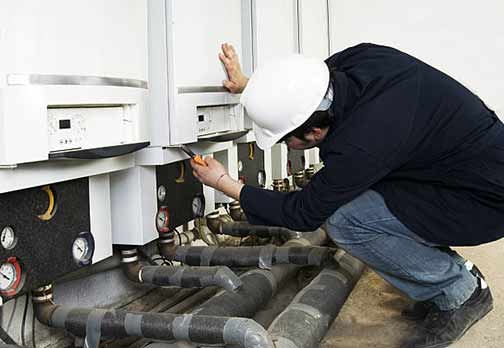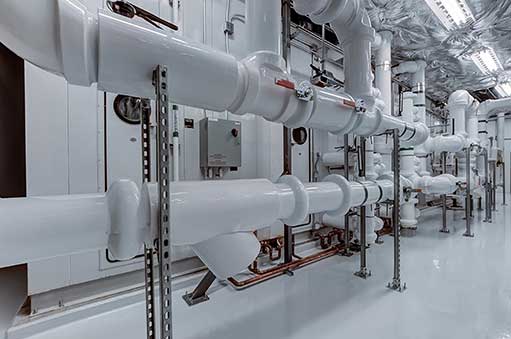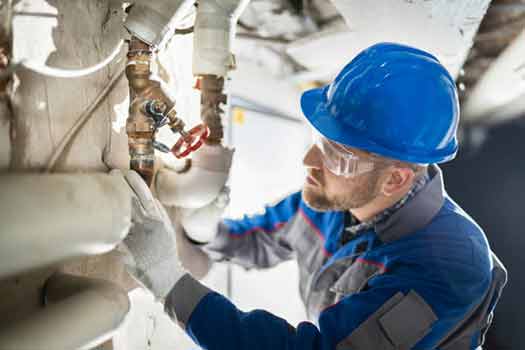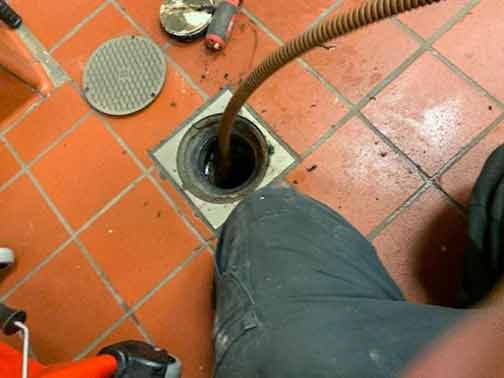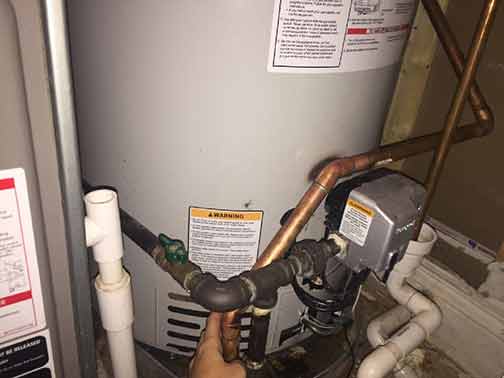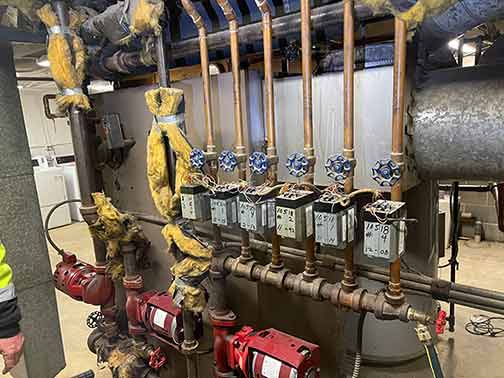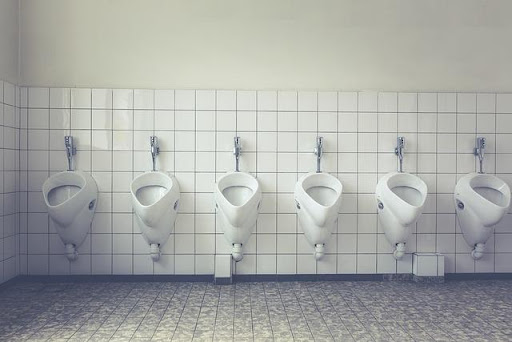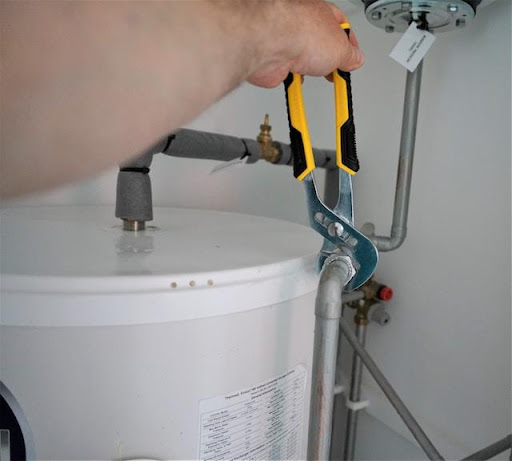Understanding the Importance of Regular Maintenance for Commercial Plumbing
Commercial plumbing systems are the backbone of any business facility, ensuring that water supply and waste management are handled efficiently. Regular maintenance of these systems is crucial to prevent unexpected breakdowns, which can lead to costly repairs and significant downtime. By understanding the importance of regular maintenance, business owners can take proactive steps to keep their plumbing systems in top condition.
Regular maintenance involves a combination of routine inspections, cleaning, and servicing of all plumbing components. This ensures that minor issues are identified and addressed before they escalate into major problems. It also helps in maintaining the efficiency and longevity of the plumbing system, thereby reducing the overall cost of ownership.
Moreover, regular maintenance helps in ensuring compliance with local plumbing codes and regulations. Non-compliance can result in legal issues, fines, and potential hazards. Therefore, it is essential for business owners to prioritize regular maintenance of their commercial plumbing systems.
Identifying Common Issues in Commercial Plumbing Systems
Commercial plumbing systems are complex and can face a variety of issues. Some common problems include leaks, clogs, and pipe corrosion. Leaks can occur in various parts of the system, including faucets, toilets, and pipes. Clogs are often caused by the accumulation of debris in drains, while pipe corrosion can result from the use of hard water or chemical reactions within the pipes. Identifying these issues early on can help prevent more severe problems down the line.
Another common issue in commercial plumbing systems is low water pressure. This can be caused by a variety of factors, including pipe corrosion, leaks, and blockages. Low water pressure can affect the efficiency of the plumbing system and lead to increased water consumption.
Additionally, commercial plumbing systems are prone to issues related to water heaters and boilers. These units can develop problems such as sediment buildup, faulty pressure relief valves, and malfunctioning heating elements. Regular maintenance of water heaters and boilers is essential to prevent these issues and ensure a consistent supply of hot water.
Implementing Preventive Measures to Avoid Costly Repairs
Preventive measures are essential to keep commercial plumbing systems running smoothly. Regular inspections and maintenance can help identify potential problems before they become major issues. Some preventive measures include:
- Inspecting pipes and fixtures for leaks and signs of wear
- Cleaning drains and removing debris to prevent clogs
- Using water softeners to reduce pipe corrosion
- Installing pressure regulators to prevent pipe bursts
By implementing these preventive measures, business owners can avoid costly repairs and ensure the longevity of their plumbing systems.
In addition to the above measures, it is also important to regularly inspect and maintain water heaters and boilers. This includes tasks such as flushing the tank to remove sediment buildup, inspecting and replacing anode rods, and checking the pressure relief valve for proper operation. Regular maintenance of water heaters and boilers can help prevent breakdowns and ensure a consistent supply of hot water.
Another preventive measure is to install water filtration systems. These systems can help improve water quality and reduce the risk of pipe corrosion. Additionally, they can help prevent issues related to hard water, such as scale buildup in pipes and fixtures.
Hiring Commercial Plumbers for Regular Inspections
While some maintenance tasks can be handled by in-house staff, it is essential to hire commercial plumbers for regular inspections. Professional plumbers have the expertise and tools to identify and address potential issues that may not be visible to the untrained eye. Regular inspections by professionals can help detect hidden leaks, assess the condition of pipes, and ensure that all plumbing components are functioning correctly.
Professional plumbers can also provide valuable advice on how to maintain the plumbing system and prevent common issues. They can recommend preventive measures and suggest upgrades to improve the efficiency and reliability of the plumbing system.
Moreover, professional plumbers are well-versed in local plumbing codes and regulations. They can ensure that the plumbing system is compliant with all necessary codes and standards, thereby preventing legal issues and potential hazards.
Importance of Proper Drainage Systems
Proper drainage systems are vital for the efficient operation of commercial plumbing systems. Clogged drains can lead to water backups, flooding, and unpleasant odors. To maintain proper drainage, it is essential to regularly clean and inspect drains, remove any debris, and ensure that the drainage system is free from blockages. Additionally, installing drain screens and traps can help prevent debris from entering the drainage system and causing clogs.
Proper drainage also helps in preventing issues related to mold and mildew. Water backups and flooding can create a damp environment that is conducive to the growth of mold and mildew. This can lead to health issues and damage to the facility. Therefore, it is important to maintain proper drainage to prevent such problems.
Another important aspect of proper drainage is maintaining the integrity of sewer lines. Sewer line issues can result in unpleasant odors, slow drains, and even sewage backups. Regular inspection and maintenance of sewer lines can help prevent these issues and ensure the smooth operation of the plumbing system.
Maintaining Water Heaters and Boilers
Water heaters and boilers are critical components of commercial plumbing systems, providing hot water for various applications. Regular maintenance of these units is essential to ensure their efficient operation and prevent breakdowns. Maintenance tasks for water heaters and boilers include:
- Flushing the tank to remove sediment buildup
- Inspecting and replacing anode rods
- Checking the pressure relief valve for proper operation
- Inspecting and cleaning burners and heating elements
By maintaining water heaters and boilers, business owners can ensure a consistent supply of hot water and avoid costly repairs or replacements.
In addition to the above tasks, it is also important to regularly inspect and maintain the thermostat and other control mechanisms of water heaters and boilers. This helps in ensuring that the units operate at optimal efficiency and prevent issues related to overheating or underheating.
Moreover, business owners should consider investing in high-efficiency water heaters and boilers. These units are designed to provide hot water more efficiently, thereby reducing energy consumption and operational costs. Regular maintenance of these units can further enhance their efficiency and longevity.
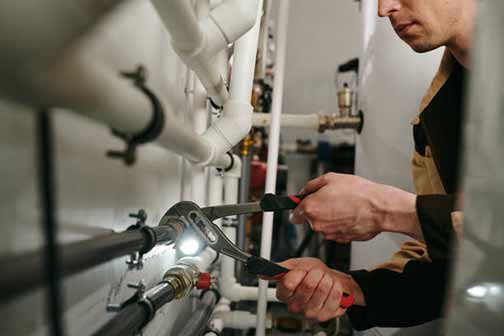
Regular inspections by professional plumbers can help identify and address any non-compliant aspects of the plumbing system.
Ensuring Compliance with Plumbing Codes and Regulations
Commercial plumbing systems must comply with local plumbing codes and regulations to ensure safety and efficiency. Regular inspections by professional plumbers can help ensure that the plumbing system meets all necessary codes and standards. Compliance with plumbing codes can prevent legal issues, fines, and potential hazards associated with non-compliant plumbing systems.
Plumbing codes and regulations are designed to ensure the safety and efficiency of plumbing systems. They cover various aspects, including the installation, maintenance, and repair of plumbing components. Non-compliance with these codes can result in legal issues, fines, and potential hazards. Therefore, it is essential for business owners to ensure that their plumbing systems are compliant with all necessary codes and regulations.
Regular inspections by professional plumbers can help identify and address any non-compliant aspects of the plumbing system. They can also provide valuable advice on how to maintain compliance and prevent potential issues. By ensuring compliance with plumbing codes and regulations, business owners can enhance the safety and efficiency of their plumbing systems.
Addressing Plumbing Emergencies Promptly
Plumbing emergencies, such as burst pipes or severe leaks, can cause significant damage to a commercial facility. It is essential to address plumbing emergencies promptly to minimize damage and reduce downtime. Business owners should have a plan in place for handling plumbing emergencies, including having contact information for emergency plumbers and knowing the location of shut-off valves to stop water flow in case of a major leak.
Having a plan in place for handling plumbing emergencies can help minimize damage and reduce downtime. This plan should include contact information for emergency plumbers, as well as the location of shut-off valves to stop water flow in case of a major leak. Additionally, staff should be trained on how to respond to plumbing emergencies and take appropriate action to prevent further damage.
It is also important to regularly inspect and maintain plumbing components to prevent emergencies. This includes tasks such as inspecting pipes and fixtures for leaks, cleaning drains, and maintaining water heaters and boilers. Regular maintenance can help identify potential issues before they escalate into emergencies and ensure the smooth operation of the plumbing system.
Educating Staff on Proper Plumbing Practices
Educating staff on proper plumbing practices can help prevent common issues and ensure the smooth operation of the plumbing system. Staff should be trained to identify signs of plumbing problems, such as leaks or slow drains, and report them promptly. Additionally, staff should be aware of what can and cannot be disposed of in sinks and toilets to prevent clogs and other issues.
Proper training and education can help staff understand the importance of maintaining the plumbing system and take appropriate action to prevent issues. This includes tasks such as inspecting pipes and fixtures for leaks, cleaning drains, and maintaining water heaters and boilers. Regular training and education can help ensure that staff are well-equipped to handle plumbing issues and take appropriate action to prevent further damage.
Moreover, staff should be aware of the location of shut-off valves and other control mechanisms. This can help them respond quickly in case of a plumbing emergency and minimize damage. Regular training and education can help ensure that staff are well-prepared to handle plumbing emergencies and take appropriate action to prevent further damage.
Investing in Modern Plumbing Technologies
Advancements in plumbing technologies have led to more efficient and reliable plumbing systems. Investing in modern plumbing technologies can help improve the performance of commercial plumbing systems and reduce the risk of issues. Some modern plumbing technologies to consider include:
- Smart leak detection systems that can alert owners to leaks in real-time
- High-efficiency fixtures and appliances that reduce water consumption
- Advanced water filtration systems that improve water quality
- Trenchless pipe repair technologies that minimize disruption during repairs
By investing in modern plumbing technologies, business owners can enhance the efficiency and reliability of their plumbing systems.
Smart leak detection systems can help identify and address leaks before they escalate into major issues. These systems use sensors to detect leaks and alert owners in real-time, allowing them to take prompt action to prevent further damage.
High-efficiency fixtures and appliances can help reduce water consumption and operational costs. These fixtures and appliances are designed to use less water while providing the same level of performance. Regular maintenance of these fixtures and appliances can further enhance their efficiency and longevity.
Advanced water filtration systems can help improve water quality and reduce the risk of pipe corrosion. These systems use various filtration methods to remove impurities from water, thereby improving its quality and reducing the risk of issues related to hard water.
Trenchless pipe repair technologies can help minimize disruption during repairs. These technologies use advanced methods to repair pipes without the need for extensive excavation. This can help reduce downtime and minimize disruption to the facility.
Creating a Maintenance Schedule for Commercial Plumbing
Creating a maintenance schedule is essential to ensure that all aspects of the commercial plumbing system are regularly inspected and maintained. The maintenance schedule should include routine inspections, cleaning, and servicing of all plumbing components. By following a maintenance schedule, business owners can stay on top of potential issues and ensure the longevity of their plumbing systems.
A well-planned maintenance schedule can help ensure that all aspects of the plumbing system are regularly inspected and maintained. This includes tasks such as inspecting pipes and fixtures for leaks, having your commercial drains cleaned professionally, and maintaining water heaters and boilers. Regular maintenance can help identify potential issues before they escalate into major problems and ensure the smooth operation of the plumbing system.
Moreover, a maintenance schedule can help ensure compliance with local plumbing codes and regulations. Regular inspections by professional plumbers can help identify and address any non-compliant aspects of the plumbing system. This can prevent legal issues, fines, and potential hazards associated with non-compliant plumbing systems.
Creating a maintenance schedule also helps in planning and budgeting for maintenance tasks. This can help business owners allocate resources effectively and ensure that all necessary maintenance tasks are completed on time. Regular maintenance can help reduce the overall cost of ownership and enhance the efficiency and longevity of the plumbing system.
Conclusion: Ensuring the Longevity of Commercial Plumbing Systems
Maintaining commercial plumbing systems in top condition requires a proactive approach that includes regular inspections, preventive measures, and prompt attention to issues. By understanding the importance of regular maintenance, identifying common issues, hiring professional plumbers, and investing in modern technologies, business owners can ensure the efficiency and reliability of their plumbing systems. Proper maintenance not only prevents costly repairs but also ensures the safety and comfort of the facility’s occupants. By following the best practices outlined in this article, business owners can keep their commercial plumbing systems in top condition for years to come.
In conclusion, maintaining commercial plumbing systems is essential for the smooth operation of any business facility. Regular maintenance, preventive measures, and prompt attention to issues can help ensure the efficiency and longevity of the plumbing system. By investing in modern plumbing technologies and ensuring compliance with local plumbing codes and regulations, business owners can enhance the performance and reliability of their plumbing systems. Proper maintenance not only prevents costly repairs but also ensures the safety and comfort of the facility’s occupants. By following the best practices outlined in this article, business owners can keep their commercial plumbing systems in top condition for years to come.
